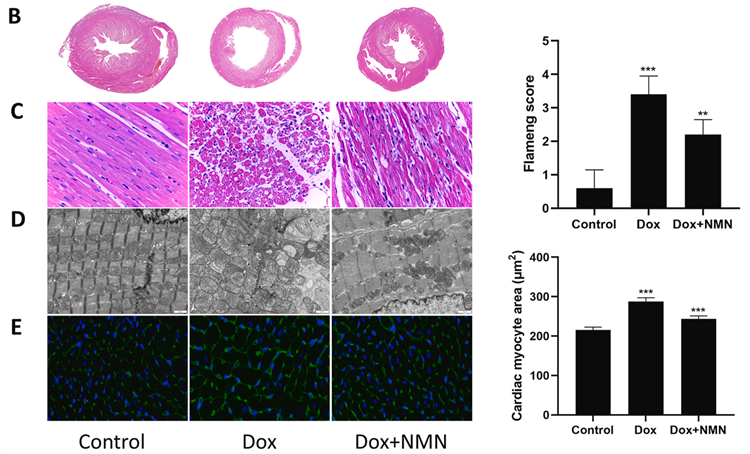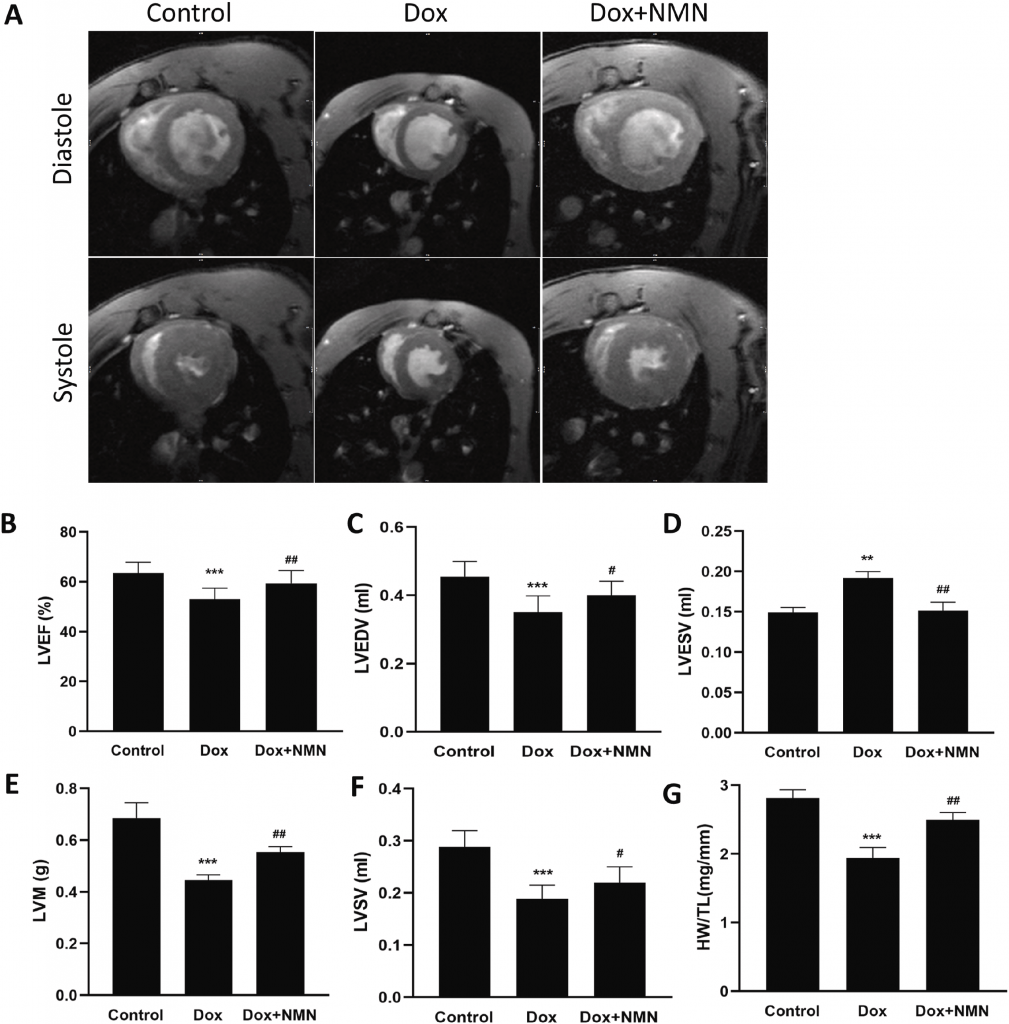Highlights
- Toxic effects on heart cells caused by doxorubicin — a common chemotherapy drug — were reversed with NMN treatment.
- NMN prevents inflammation, oxidative stress, and heart cell death induced by doxorubicin, restoring heart function.
- These findings contribute to the idea of using NMN as an adjuvant to chemotherapeutics.
Cancer treatment requires the delicate calibration of eliminating unwanted cancerous cells while not damaging essential ones. Treatment with doxorubicin, a highly effective and commonly used chemotherapeutic for adult and pediatric cancers like breast cancer and leukemia, causes heart complications called doxorubicin-induced cardiotoxicity (DIC) in up to a quarter of treated patients. So, a balancing agent — or adjuvant — is needed to protect the heart during chemotherapy with doxorubicin.
In a study published in Archives of Biochemistry and Biophysics, Wan and colleagues from Sichuan University in China blocked the heart toxicity induced by doxorubicin in mice using nicotinamide mononucleotide (NMN). This NAD+ precursor, which has shown protection to the body from other chemotherapeutics and to shield against heart aging and failure, prevents doxorubicin from disrupting heart cell vitality, tissue organization, and organ function. These findings add to the accumulating evidence for NMN as an adjuvant to safeguard against toxicity and damage induced by chemotherapy.
NMN Reduces Heart Injury During Chemotherapy in Rats
To test the effect of NMN on DIC, Wan and colleagues set up experiments in rats injected with doxorubicin and NMN, which they compared to untreated rats and rats treated with doxorubicin only. Before even examining the heart, the researchers could get a readout of heart damage by looking at the levels of certain enzymes in blood samples. Such heart damage-related enzymes were abnormally high in blood samples of rats treated with doxorubicin, but, with NMN co-treatment, these levels reverted to those seen in untreated rats.
In the heart, Wan and colleagues saw that doxorubicin caused several severe heart abnormalities like disorganized heart muscle structure and scarring (fibrosis), which can impair the heart’s pumping abilities. With powerful microscopy, the researchers showed that this disorganized heart tissue went all the way down to the level of individual heart cells. The researchers saw that critical structural filaments and energy-producing compartments (mitochondria) were damaged in these heart muscle cells. Also, doxorubicin causes some of the heart muscle cells, called cardiomyocytes, to shrivel up. All of these heart damage characteristics induced by doxorubicin, from the organization of heart tissue to the components within heart cells, were restored by NMN co-treatment.

NMN Restores Heart Function and Size In Rats Treated With Doxorubicin
Wan and colleagues then tested if NMN’s effects on cell abnormalities induced by doxorubicin led to improvements in overall heart function in rats. To do so, the Sichuan University researchers examined the heart’s ability to pump blood, which depends on heart muscle strength and integrity. The Chinese research team found that the amount of blood pumped per heartbeat decreased in doxorubicin-treated rats. Along these lines, NMN helped protect the heart’s function by restoring the contraction (systolic) and relaxation (diastolic) phases of the blood pumping cycle. In addition to restoring heart function, NMN also reversed the reduction in heart size observed in doxorubicin-treated rats.

To determine how NMN protects the heart from doxorubicin damage, Wan and colleagues examined the effect of NMN on inflammation, oxidative stress, and cell death. All these parameters increased in the doxorubicin-treated rats but were all reduced by treatment with NMN. Additionally, NMN reduced the accumulation of harmful inflammatory compounds called reactive oxygen species — a process known as oxidative stress — and prevented reductions in essential antioxidants that combat inflammation. Specifically, NMN recovered the levels of the major antioxidants glutathione and superoxide dismutase.
Can NMN Be A Chemotherapy Adjuvant?
This study shows that NMN can prevent or alleviate the toxic effects of chemotherapeutic drugs, which gives heed to further exploration of NMN treatment and boosting NAD+ as an adjunct to chemotherapy. In support of this, other research on NMN and cancer treatment by Yoo and colleagues recently demonstrated that NMN can prevent the toxic effects of cisplatin, another chemotherapy drug. Similar to the toxic effect of doxorubicin on the heart, cisplatin has toxic effects on the brain. In mice, Yoo and colleagues showed that NMN prevented many brain cell abnormalities associated with neurotoxicity. Together, the findings of these studies provide hope, as NMN can potentially treat the toxic effects of chemotherapeutic drugs.